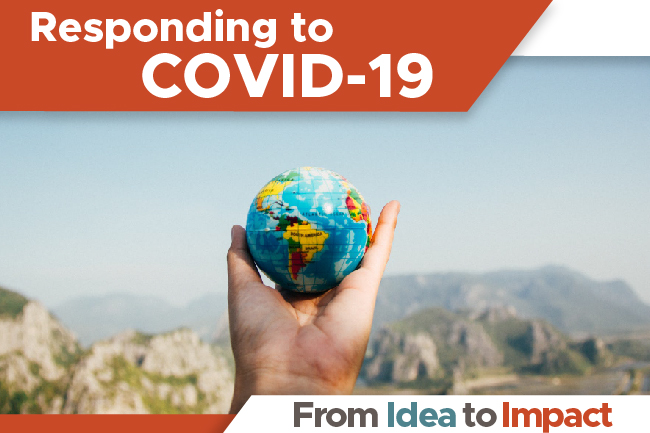In Moments Like These, Keep Listening and Learning

In the midst of a crisis, it’s harder than ever to listen carefully. And all the more important.
By training, disposition, and long professional practice, I’m an evaluator. That means I love learning, love sharing about what I have learned, and nerd out over information and data—any kind, anywhere. Right now, there are data all around us, some of it coming from reliable sources, some of it not, and we have a desperate need to learn quickly. Still, even in this moment, I keep coming back to a lesson learned over a career spent facilitating learning: We cannot learn unless and until we take time to listen.
By “listen,” I mean more than just absorbing information through our ears, hands, or eyes. I mean opening our minds to humbly understand all the data coming in, and then critically examining what information is credible, meaningful, and actionable. And not just quantitative data, but qualitative as well, the stories and anecdotes that are as powerful and meaningful as the numbers. By “listen,” I mean intentionally seeking to process all those data so that we can understand each other more fully and act more effectively, both to save lives in the near term and to promote a more just world in the future.
In a moment when we feel like we’re back on our heels, we might be tempted to stick to the familiar, to limit our inputs and wait for things to go back to normal. Or we might believe that we don’t have time to listen closely, because this really is an emergency. However, when we don’t listen carefully, when we don’t take a deep breath and a moment or two to analyze the data coming in now, processing it in light of information that came in before, we lose opportunities to learn how best to move forward.
A few months ago, a doctor in Wuhan raised his voice and not enough people listened—and he and thousands of others have since died. Subsequently, some governments listened carefully and acted quickly. Others didn’t. Perhaps they didn’t listen closely enough, or with enough humility to properly prepare. Domestically, many of our systems—in healthcare, criminal justice and elsewhere—are now straining in the very places where voices have been raised repeatedly in the past. What might these systems look like now, I wonder, if more people had been listening to the data, listening to the voices of the affected communities, listening to history?
Even in this moment, when we’re on our heels and feeling the urgency of great need, we have to find the time, the energy, and the intentionality to listen carefully—for both the good and the bad signals, for both inspiring examples and outright failures. We need to listen to how our investments in workforce protections, government transparency, health care, education, and more have—and have not—prepared us to adapt in moments like these. We need to listen closely at the places where our solutions could have and should have been better. Of course, we also need to listen for immediate, critical needs (here the listening might begin with a simple call to a partner to ask what is happening on the ground and what they need to get through this time).
This is not the world’s first pandemic, much less its first crisis. And it won’t be the last. So let’s listen right now, let’s learn from this, and let’s seed future solutions even as we’re supporting today’s urgent needs. Let’s listen in the communities hardest hit by the economic crisis, and where impoverished health care systems are least able to adapt to crisis. Let’s listen to those on the frontlines as well as those trapped at home in communities that have too often not been heard before. Let’s listen to the voices of nonprofits and advocacy organizations, as well as the voices in our government and service agencies that support the health, education, and welfare of our communities.
Even at a moment like this, listening to the data—and to the voices of affected people and communities—is not an indulgence. On the contrary, listening carefully and reflecting intently is arguably more important now than ever. It’s crucial to restoring our nonprofit sector, to building better health care and education systems, to increasing accountability and trust in governments, and more. Even at a moment like this, continuing to listen and learn is how we begin to build a better future together, in the days and weeks and months and years ahead.
About the Author: Julie Slay, PhD, has led Arabella Advisors’ Learning and Evaluation Practice for six years. She and her team help philanthropists and their partners to reflect and learn by gathering, organizing, and synthesizing relevant information to help them go from idea to impact.
